ENS Public Goods: Supporting founders and builders in Africa
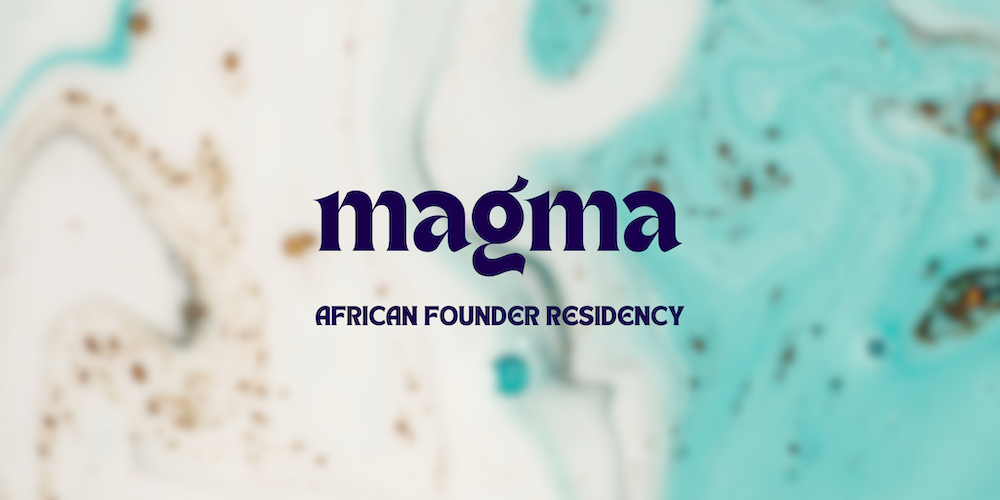
I recently spent two weeks in Kilifi and Nairobi, Kenya, joining magma, a residency for African founders supported by the ENS Public Goods working group. This post documents the experience, starting with a moment that perfectly captured the spirit of the whole trip..
Amos paused. The room went quiet as people searched for the right answer.
Laughter erupted - not just at the delivery, but at the truth behind it. In too many places, being the only one who makes it isn’t a mark of brilliance, but a sign you’ve left others behind. A subtle, sharp reminder that real success means bringing people up with you.
Context
magma is run under the Borderless umbrella by Yoseph and Songyi who are both incredible people with long standing histories in the space. Songyi was a driving force behind the production of ENS’ inaugural Frensday at Devcon in Bangkok.
At the end of March, on the ENS Public Goods working group call, Yoseph gave an update on how the grant funds were being used. Part of the funding Borderless received went toward taking a number of African builders to Devcon - an experience and opportunity that otherwise wouldn’t have been possible. A portion of the remainder was allocated to magma, and Yoseph’s description of the program was so compelling that it felt strange to support it from afar without seeing the impact on the ground.
I’m impulsive. The offer came, I trusted my gut, booked a flight, and went to Kenya.
That was one of the best decisions I have ever made.
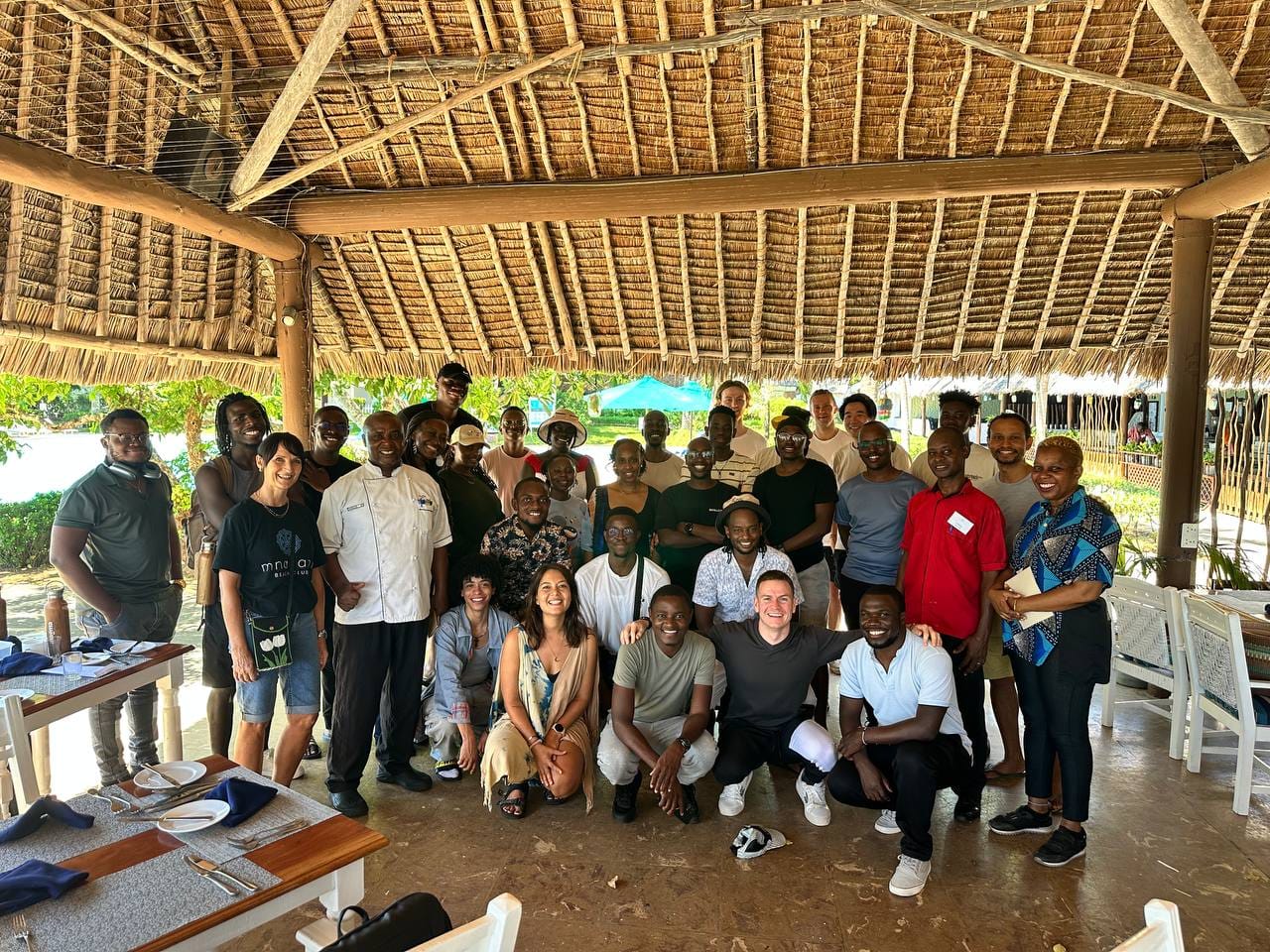
Participants
There were nearly 40 incredible founders, developers, and researchers in attendance, each bringing something unique to the table.
The products being built spanned a wide range of verticals: payment rails, KYC tooling, insurance tech, tokenisation of real-world assets (buses and coffee), DeFi, P2P trading, and more.
Wisdom and Francis stood out as exceptionally sharp ZK researchers. Through their organisation, Sublinear Labs, they’re building an educational residency to up-skill African talent in zero-knowledge cryptography. Darlington and Cindy were equally impressive - passionate Starknet advocates already building with Cairo.
What stood out across the board was that everyone’s work was grounded in lived experience. They were building tools to improve their own lives and those of their communities - or dedicating themselves to nurturing African talent and expanding opportunity across the continent.
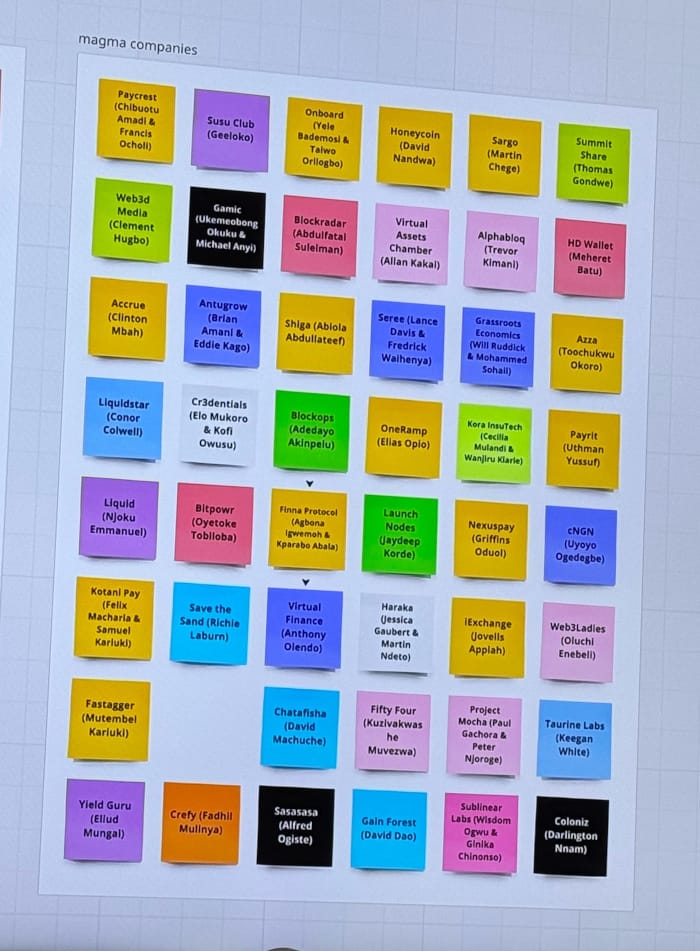
Supporters
As well as myself, there were a number of incredible supporters from across the industry.
Expertise spanned mechanism design, tokenomics, security, DAOs, DeFi, funding, storytelling, and brand building. Needless to say, my role was not one sided - I learned a lot.
I particularly enjoyed the "Thinking like a security researcher workshop" by Samater- an incredibly talented security researcher who was previously a participant in a previous magma cohort.
"Unleashing the Power of Your Story" by Kheireddine Kamal and Stephanie Arrowsmith was also incredibly insightful.
The distinction I’ve made between ‘Participants’ and ‘Supporters’ might suggest the learning only flowed one way. That couldn’t be further from the truth - I learned just as much, if not more, from the participants. The breadth and depth of knowledge was genuinely next level.
As the saying goes: “If you’re the smartest person in the room, you’re in the wrong room.”
The number of amazing blockchain companies coming out of Africa is astonishing.
— clowes.eth (@GUA) April 12, 2025
The developer talent and passion to learn is out of this world.
It’s incredible to see builders taking control, working collaboratively, and defining their own technological future. pic.twitter.com/NnhRTYdIul
ENS
I was asked to present a workshop on ENS. I was blown away by the level of interest, and the desire to learn.
At most Western crypto events, when I ask “Who here has an ENS name?”, nearly every hand in the room goes up. This time, far fewer hands were raised.
We fixed that.
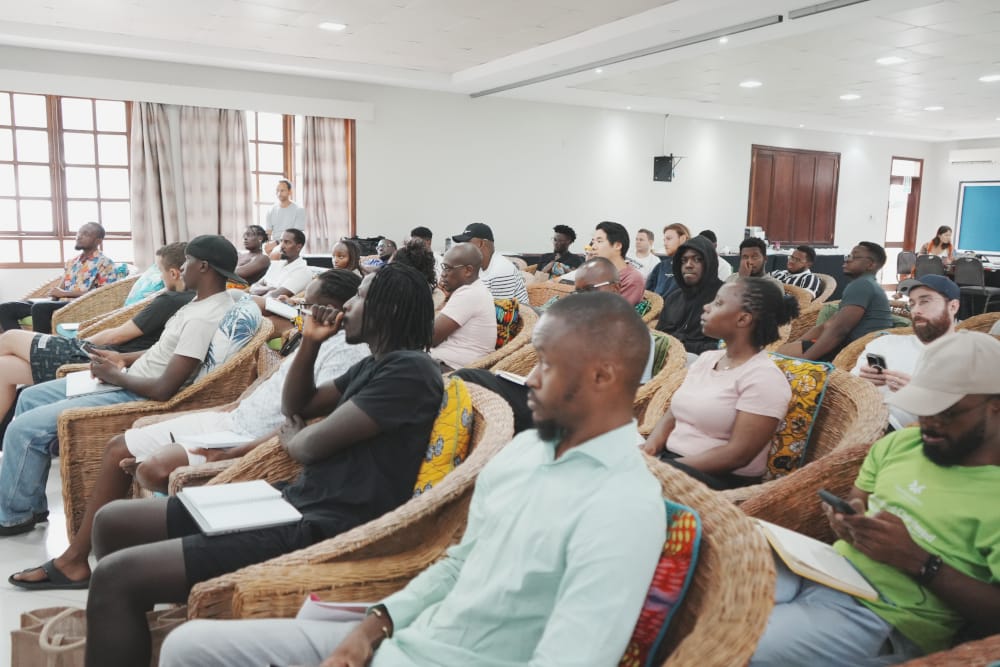
The workshop covered what ENS is, the problems it solves, its integrations, and a high-level look at the architecture.
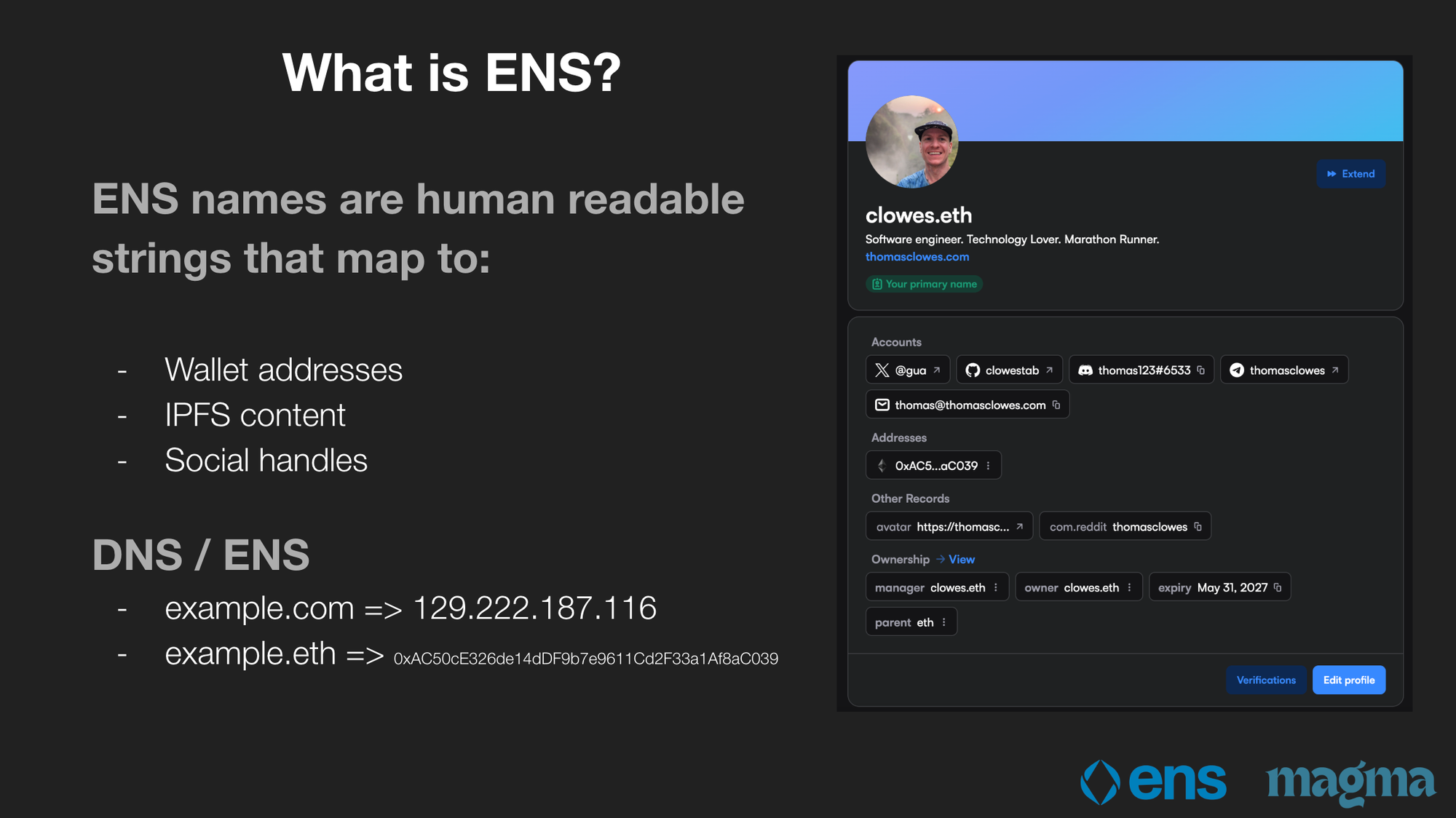
The questions that followed opened up deeper conversations around the DAO, governance, and how to contribute meaningfully to the broader ENS ecosystem.
As luck would have it, both Jeff Coleman (jeff.eth) and James Waugh (james.eth) were also supporting the event. Together, we went down the metaphorical rabbit hole with the group - unpacking ideas, answering questions, and helping onboard people who were genuinely curious and engaged.
This included making sure that everyone in the room had an ENS name:
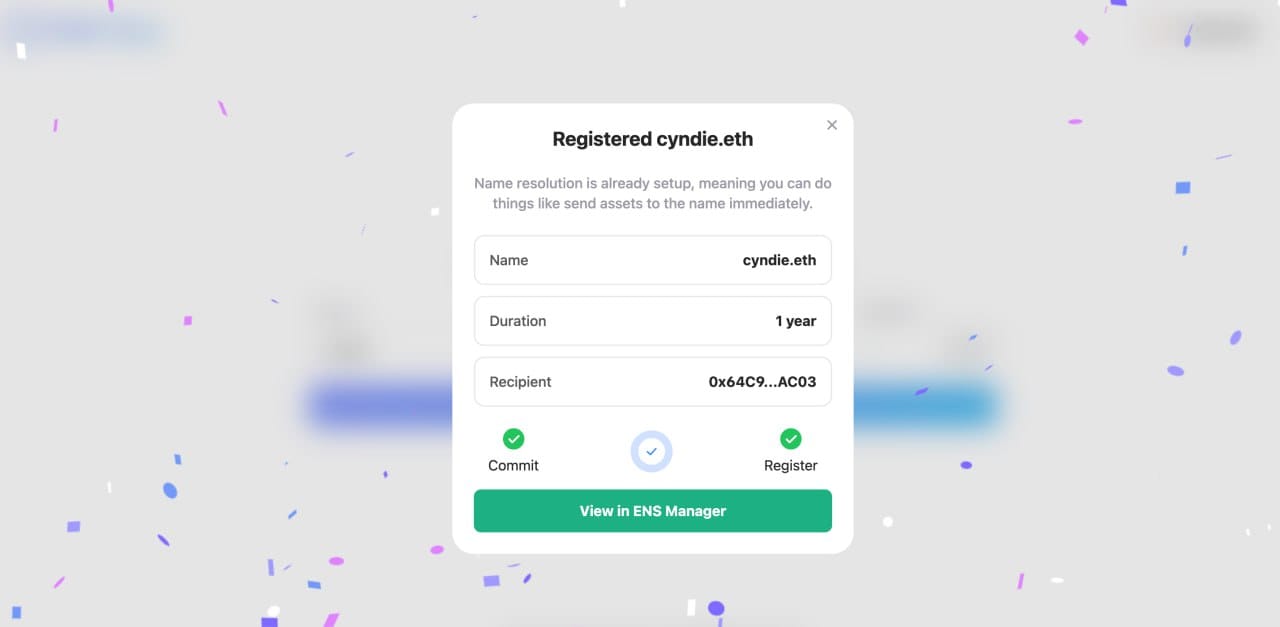
And airdropping everyone 10 ENS tokens to allow them to get involved with ENS governance:

ENS’ support of the event was intended as generalised backing for magma as a public good. My presence wasn’t intended to shill ENS as a product - but the agenda was intentionally flexible, and the content evolved to match the interests and energy in the room.
As Yoseph put it, “ENS is the real winner here.”
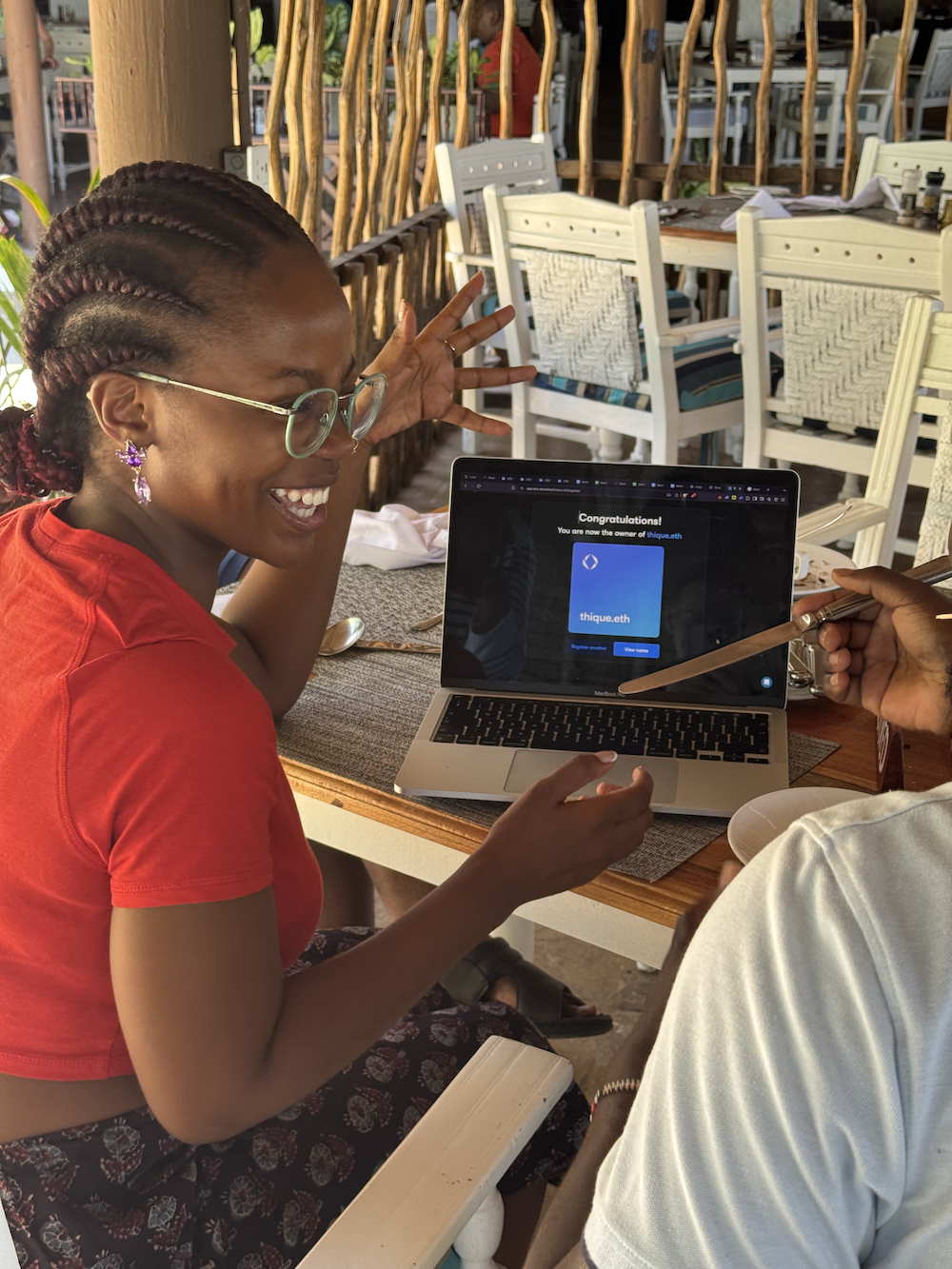
Throughout the residency, dedicated time was set aside each afternoon for ‘Office Hours’ - open sessions where supporters could offer one-on-one support to participants.
Over the 10 days in Kilifi, my office hours were oversubscribed to the point where I had to scale back in the final stretch just to avoid complete exhaustion. The questions were sharp and focused - it was obvious these builders had done their homework and were eager to dig into more advanced ENS concepts.
One standout moment came from Fadhil, who’s building Crefy. After a 45-minute session where we explored potential integrations, he went away, implemented everything we discussed, and returned the next day with a fully working ENS subname integration.
Incredible energy. Incredible execution.
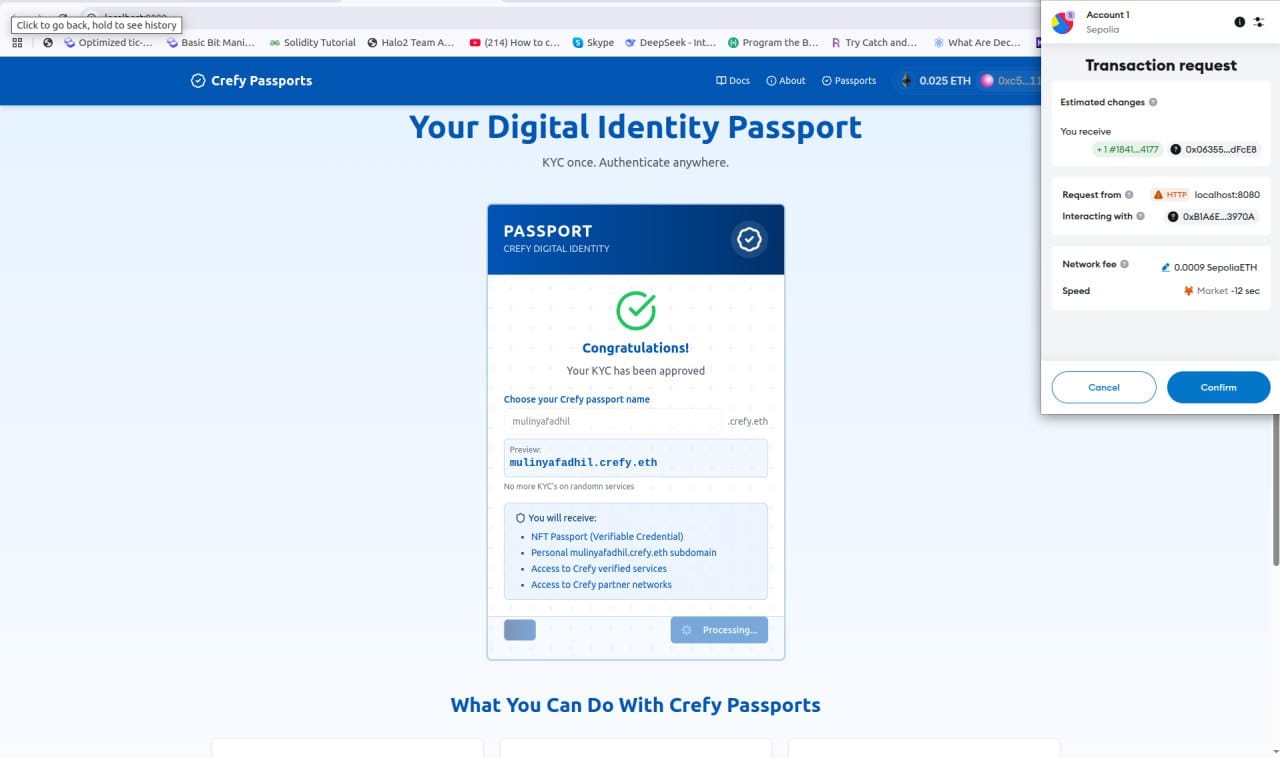
Other participants were also curious about how ENS could be integrated into their products - most commonly as a way to provide usernames or to help identify real-world assets.
One particularly interesting use case came from Project Mocha, which is focused on improving access to capital for coffee farmers. We explored how ENS could be used to identify individual coffee trees on-chain.
Another was Antugrow, a platform working to transform farming more broadly with tools for monitoring operations and accessing markets. We explored several ways ENS could be used to support their efforts.
Feedback
It was also incredibly valuable to hear feedback from builders on their experiences working with ENS. Several interesting conversations surfaced confusion around integration - specifically that there are often multiple ways to achieve the same outcome, which can make it harder to know where to start.
Others shared that they had previously integrated ENS but hadn’t maintained those integrations due to a lack of visible demand.
Personally, I find it fascinating - and important - to explore how we as an ecosystem can better engage with builders, understand their needs, and actively remove friction. One phrase that came up repeatedly when discussing products on the continent was the need to “meet users where they are.”
In many African markets, people don’t want more apps - they want solutions that fit seamlessly into the tools they already use and understand.
The community
During the weekend we headed over to a local village and helped local villagers build a home. We had been led to believe that we were building a home for a family. It turned out that we were in fact building a home for.. chickens.
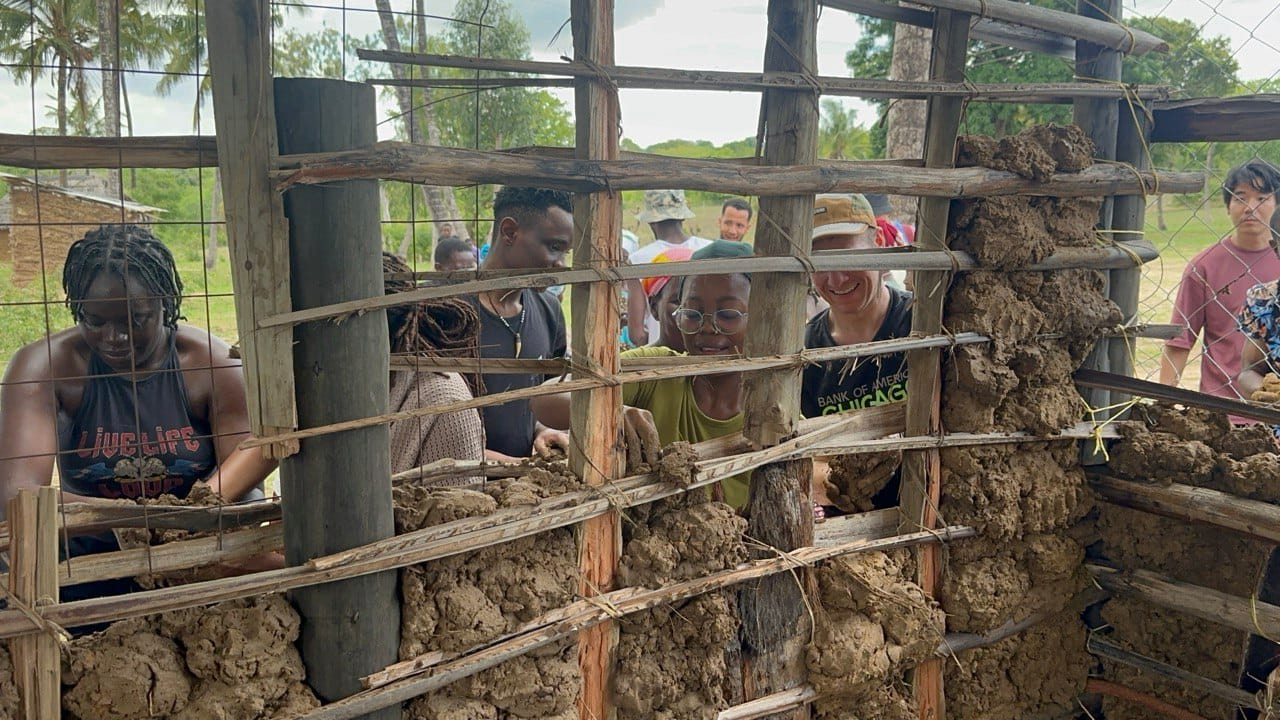
We went in collaboration with Grassroots Economics, a non-profit foundation that seeks to support communities to take charge of their own livelihoods and economic future.
In return for our work we were compensated with tokens from Sarafu Network as a demonstration of the concept of commitment pooling, an example of Economic Commons.
"With Sarafu.Network, you can create vouchers to represent your future commitments—like gift cards for products or services—or to certify completed community achievements.
These commitments come together in shared pools, allowing communities to seamlessly swap valuable assets, goods, and services."
Coming from an economics background, it was genuinely inspiring to see such a novel concept in action. The entire framework is built around economic empowerment - and experiencing it firsthand really highlighted the level of privilege we, in the West, often take for granted when it comes to financial access and inclusion.
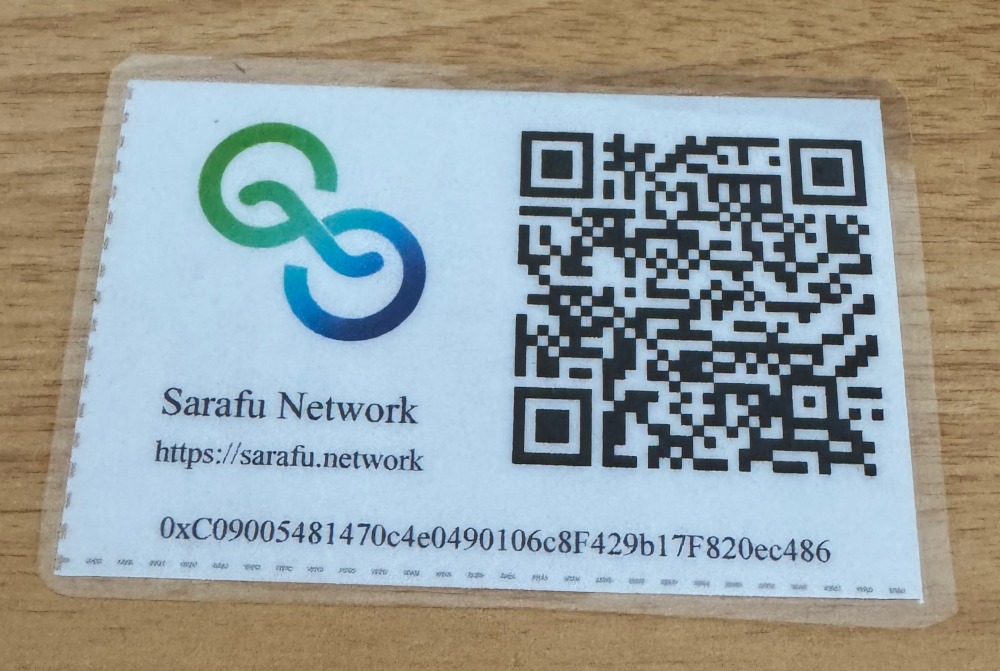
Nairobi
After 10 days in Kilifi, we travelled to Nairobi for magma connect - a chance to connect with participants from previous magma cohorts and dig deeper into the broader vision for the continent.
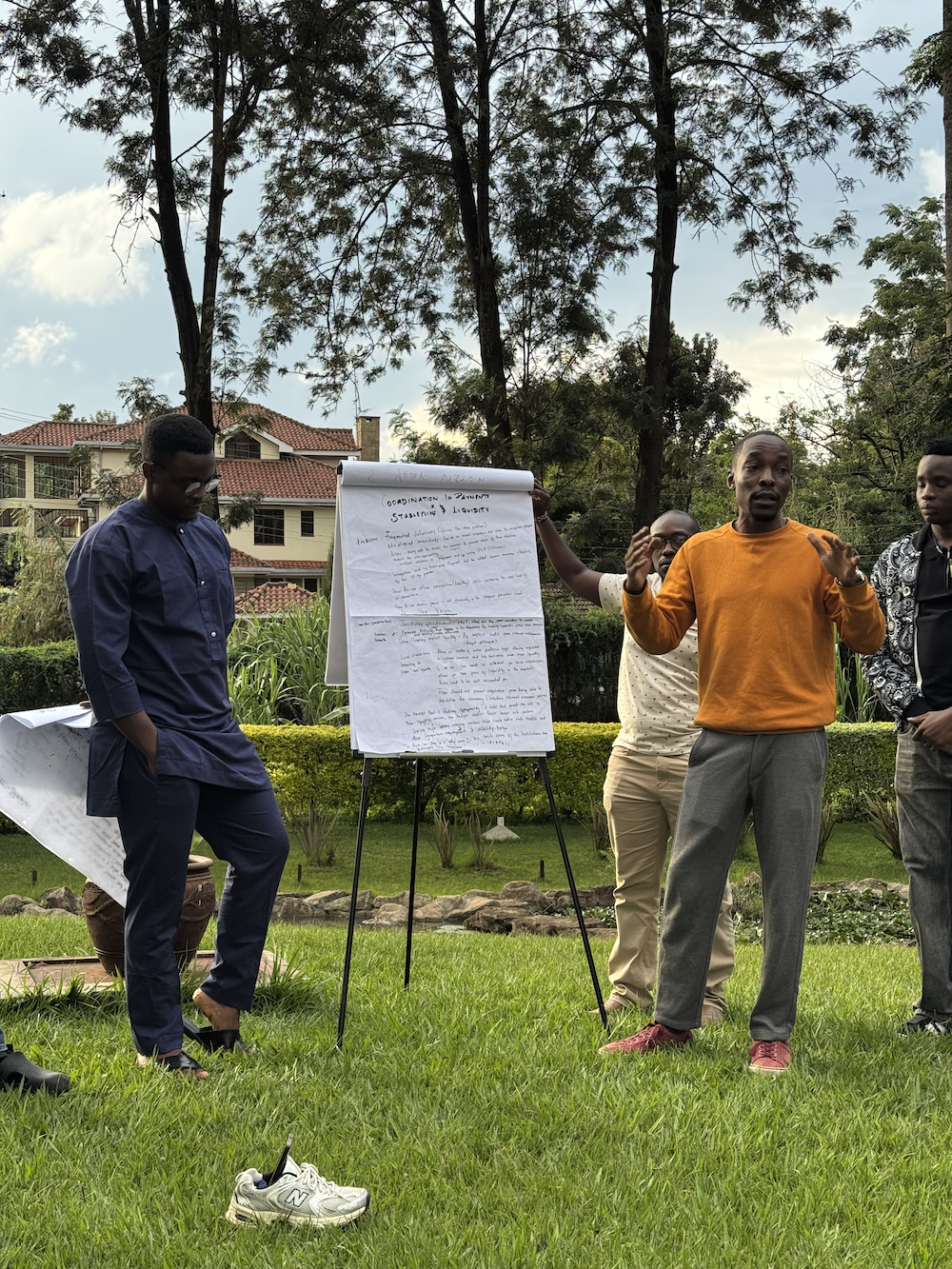
Conversations ranged from regulatory challenges to building truly African products, with open breakouts exploring five key themes: building an open financial system, inclusive data infrastructure, talent development and education (an area I’m particularly passionate about), cultural sovereignty, and governance.
What vision do you have for Africa, that can be built or executed within the next 5 years to a decade?
— Borderless Africa (@borderlessaf) April 13, 2025
It can be in any industry/category, let us know what you would like to see from the continent. Share your vision as a comment in the thread below🧵
While in Nairobi, I also connected with some of the team behind Web3Clubs and visited their space. I know I sound like a broken record at this point - but the quality of the work coming out of this ecosystem is truly world-class. They walked me through some of their low-level protocol maths content, and I was blown away. They’ve produced nearly a full week’s worth (168 hours!) of accessible video instruction on some seriously complex topics. Take a look:
Whats next?
Looking back, I honestly think this is the best $50,000 the ENS DAO has ever spent.
This wasn’t just an event or a grant - it was a deeply intentional investment in people. In builders who are already doing the work, already solving real problems, already innovating with limited resources and little external recognition. The value created through this residency - in knowledge shared, relationships built, integrations implemented, and inspiration sparked - far exceeds what you could typically expect from a grant of this size.
It’s one thing to fund public goods in theory. It’s another to see, in person, what happens when you show up and actually support developers on the ground - not just financially, but through time, conversation, collaboration, and shared belief.
If we’re serious about making ENS (and Ethereum more broadly) a truly global public good, then this is the blueprint: go where the energy is. Find the people already building, already dreaming, already shipping. Meet them where they are. Help remove friction. Help them win.
We should be doing a lot more of this.
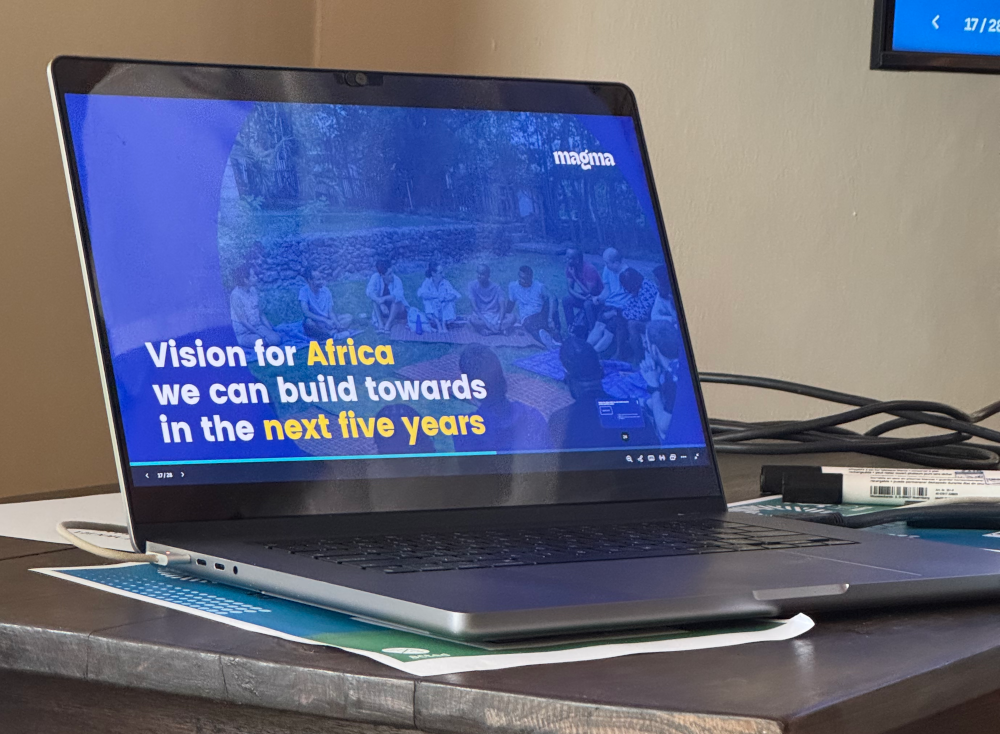
Further Reading
- I’d highly recommend reading this post from Ethereum OG Lane Rettig who was also a magma supporter - Postcard from Africa.
- Find out more about magma and follow borderless.
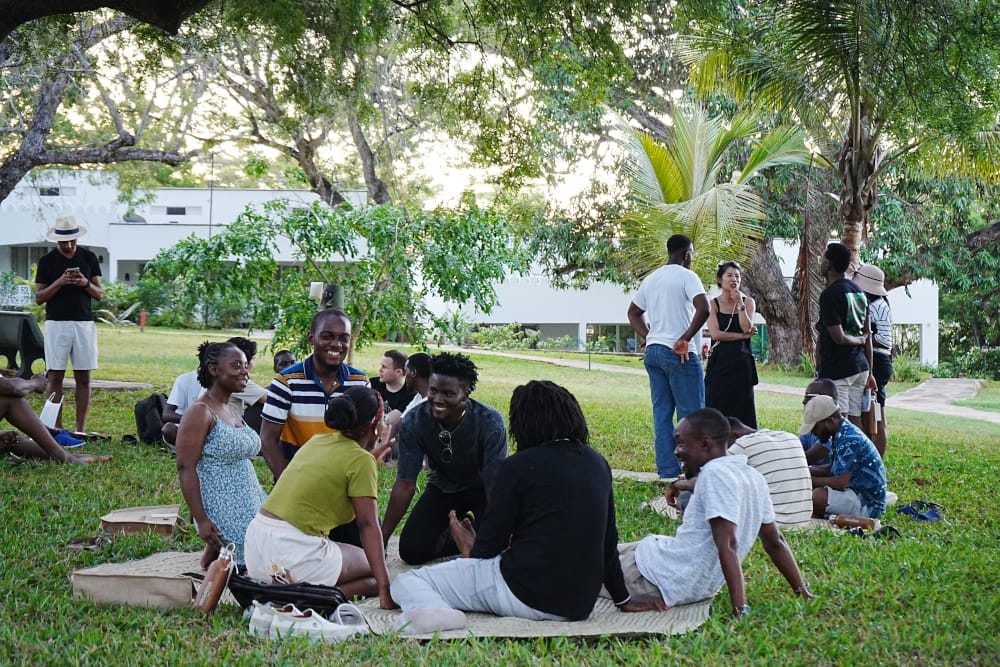
For commentary and discussion: https://discuss.ens.domains/t/ens-public-goods-supporting-founders-and-builders-in-africa/20639